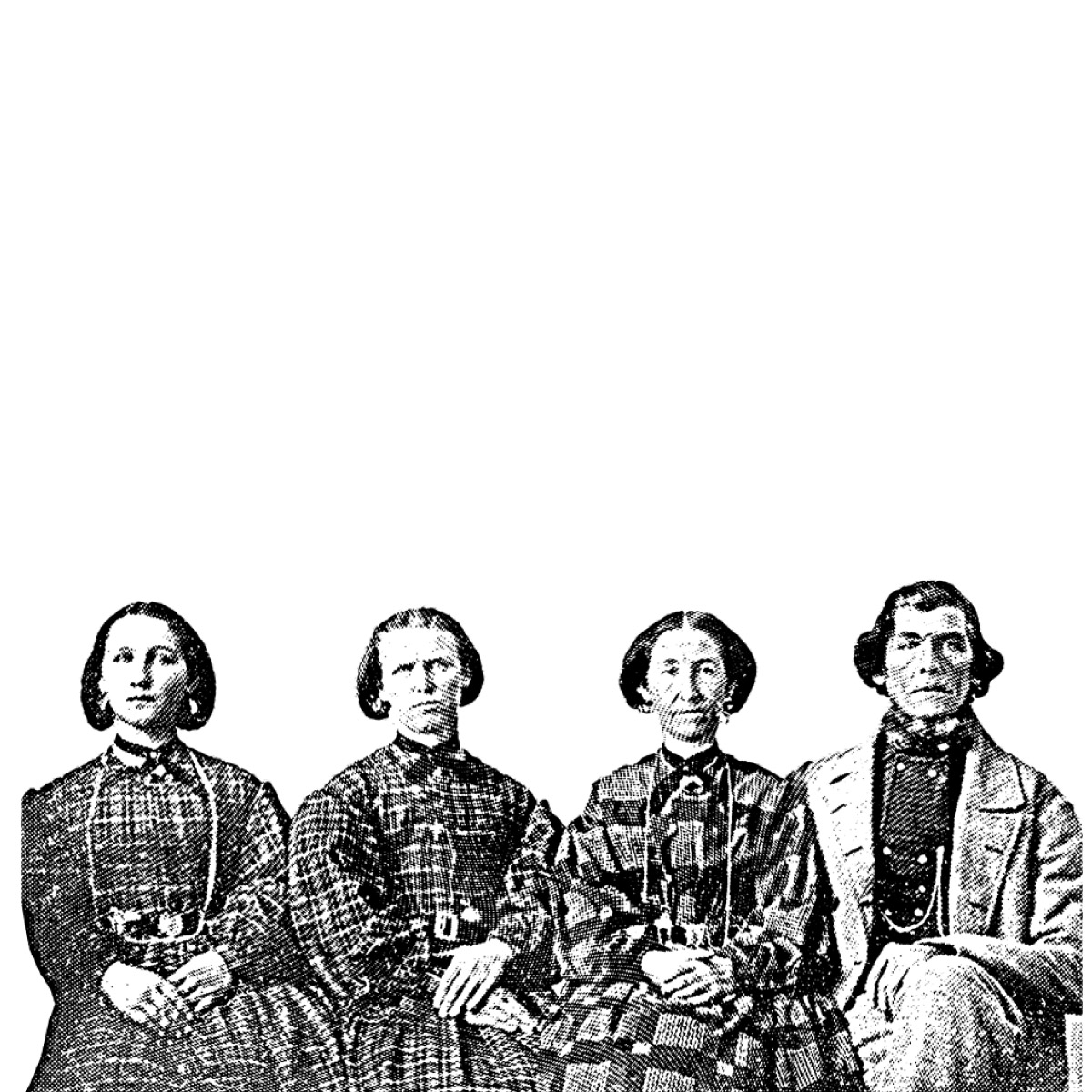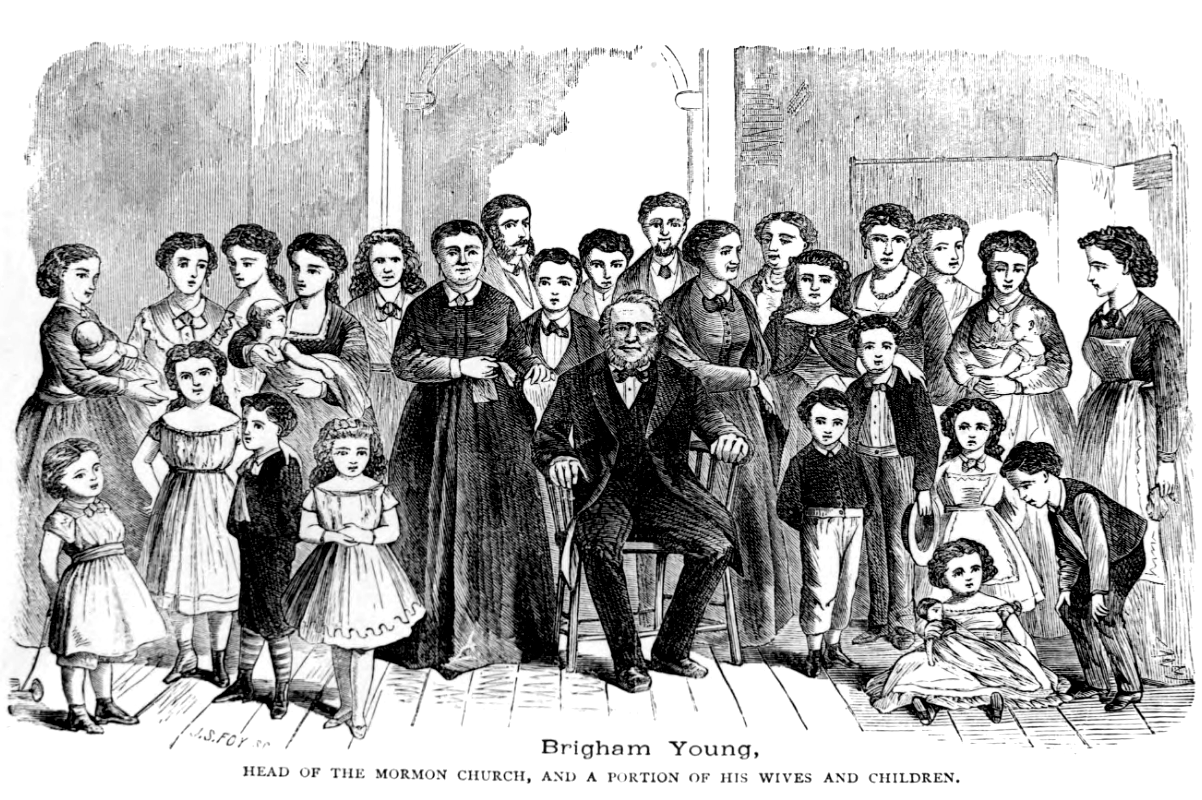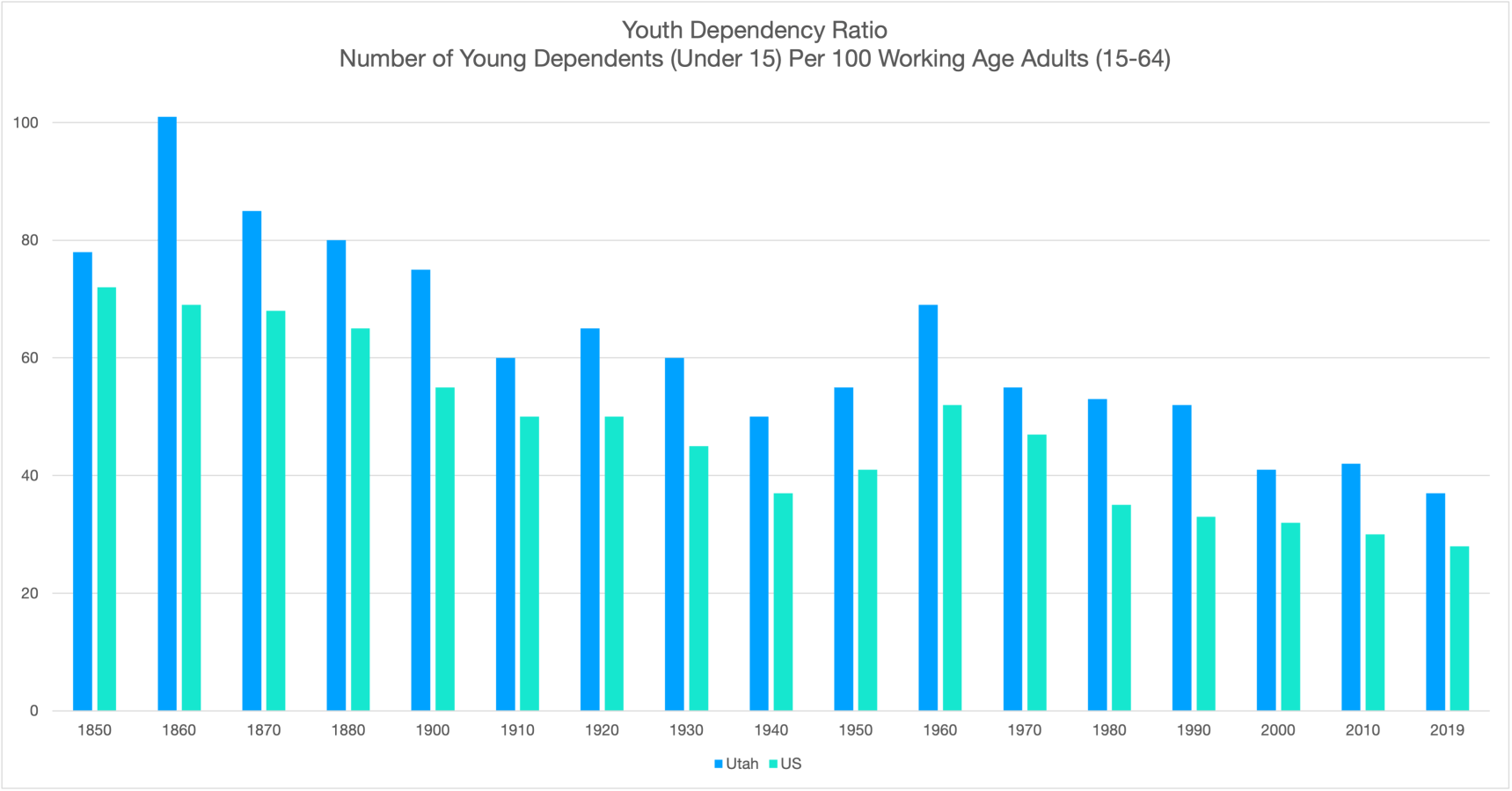Polygamy and Population Growth


Does the Book of Mormon teach that polygamy is instituted by God to "raise up seed"?
Yes. Jacob 2 states, "For if I will, saith the Lord of Hosts, raise up seed unto me, I will command my people."[1]
Related Question
Did Joseph Smith marry girls in their late teens before teaching publicly about polygamy?
Read more in Joseph Smith and Fanny Alger
Did polygamy actually increase the population in Utah more than it would have otherwise?
Yes, probably. Studies have shown that societies where a man can have more than one wife tend to have many more children than other societies,[2] and Latter-day Saints had a lot of children relative to the rest of the U.S. at the time, particularly while polygamy was practiced.[3]

But isn't it true that plural wives have fewer children than non-plural wives?
Yes. Latter-day Saint plural wives (and plural wives in other societies[5]) generally had fewer children than their non-plural wife counterparts.[6]
So if non-plural wives have more children than plural wives, wouldn't the population have increased even more if polygamy wasn't practiced?
No. Polygamy leads to fewer unmarried women,[7][8] which increases the number of children born in the polygamous society overall even if plural wives had fewer children than non-plural wives in that society.[9]
Was there a disparity between the number of men and women in Utah at the time?
Probably not, but kind of.
Several early Church sources suggested that there were more women than men in the early Church and that polygamy helped provide homes and spouses for these women.[10] However, accounts that are less anecdotal and more quantitative suggest there wasn't a significant disparity between men and women at the time.[11]
However, some research indicates that women were more religious than men, which would create a disparity between men and women in the context of eligibility based on religiosity.[12]
- Kenneth
“If in the Celestial Kingdom, there are more women than men, just as they were more religious in mortality during the time of polygamy, polygamy would be necessary for all those worthy to obtain Exaltation, if indeed being sealed is necessary.” - Andrew
“It seems to me that when the verse in Jacob says "raise up seed unto me" there are two meanings. More population and/or righteous seed. Children born into homes where parents have made an ultimate commitment seem to more directly fulfill the latter than polygamy does the former.” - Rick
“I don't think Jacob 2:30 is a loophole at all for Polygamy. Anyone suggesting it to be is misreading the verse in the context of the chapter.” - Stephen
“I tend to think that the “raise up seed” concept is couched somewhere in the Abrahamic Covenant. All “seed” is ultimately God’s seed. But, for some reason “seed unto myself” is different. Perhaps it’s a way that God fulfills His Covenant more than increasing a certain population?”



 about this topic
about this topic